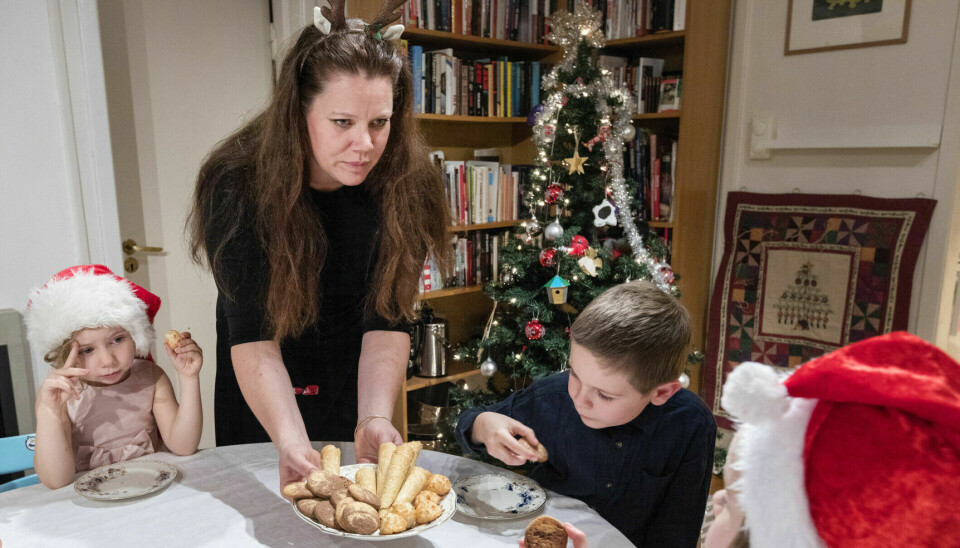
Christmas stress in the past and now: “We complain much more than my mother's generation”
We have it easier today than before, one researcher believes. Christmas is still demanding and complicated, believes another.
“It’s a cultural phenomenon that we complain about not having enough time. And we continue to do so even though we have shorter working hours, and more children are in daycare and after-school activities,” Lise Widding Isaksen from the University of Bergen says.
“Many signs suggest that we have more time for each other now.”
And yet people still stress out and complain about everything they have to do for Christmas.
“The Christmas preparations for an average family today can’t be compared to what the generation before us did,” Geir Risåsen from the Norwegian Folk Museum says.
In the 1970s, the great Nordic women's revolution began. There were significant changes in a short period. Many women entered the workforce.
“That’s marked the transition from full-time housewives to families without housewives,” Widding Isaksen says. She researches family life.
Greater demands and expectations
Nevertheless, there were far more housewives in the 1970s than today. They faced demands and expectations, even in the preparations for Christmas.
Geir Thomas Risåsen believes that Christmas was much busier in the 1970s than today.
“Christmas traditions were stronger back then. There were different and stricter expectations for what you had to deliver before and during Christmas,” he says.
If women worked, they prepared Christmas in the afternoons and evenings. Men contributed very little.
“There was an unflattering term: bad housewife. It referred to women who didn’t keep the home in order and didn’t meet the standards expected for Christmas,” Risåsen says.
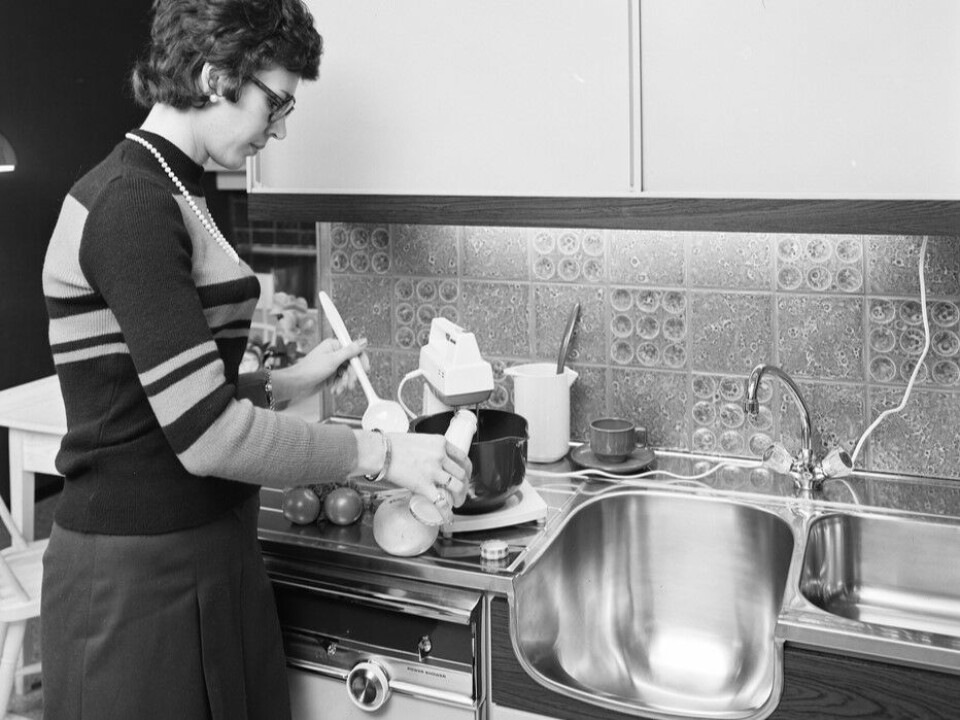
Made Christmas at night, worked during the day
Most viewed
His mother is a typical example of women in the 1970s. She had a job and lived on a small farm.
“When women allowed themselves to work outside the home, there was little room for not having the house 100 per cent in order. Advent time was especially busy,” Risåsen says.
His mother sewed new outfits the whole family for Christmas. She did the Christmas baking, which, as per Norwegian traditions, included seven different types or more. The animals were slaughtered for Christmas, and it was his mother who butchered them and made minced meat, head cheese, cold cuts, and sausages. The house was cleaned and decorated. Tablecloths and napkins were rolled, and silverware and copperware were polished.
“She worked until two or three in the morning but showed up at the office at eight the next morning,” Risåsen says.
The word stress did not exist in the 1970s.
Tough old aunts
“But my mother was exhausted when Christmas came,” Risåsen says.
If women did not do a good enough job, they heard about it.
"The old aunts were harsh critics. We don't get visits from such aunts today. The standards are much lower now. Things aren't as strict anymore," he says.

But that doesn't stop us from complaining about Christmas stress, neither the now-grown children of the women of the 1970s nor the grandchildren in their 20s and 30s.
“We complain much more than my mother's generation. They didn't complain. It was just the way it was,” Risåsen says.
“All the craftsmanship that went into keeping a home in order is gone. We don't spend as much time on such things anymore, but we're still stressed,” he says.
Today, what we want most of all is time together.
We still clean and cook
“More time together with children and family is at the top of the list when people are asked what they look forward to most at Christmas,” Widding Isaksen says.
She believes that there's still a lot to be done in preparation for Christmas.
“There's an incredible amount of logistics, coordination, and planning involved in carrying out Christmas.”
People still clean their homes and prepare a lot of food. In addition, thousands of people travel by plane, train, boat, and car to come home for Christmas. They need a place to stay and food to eat.
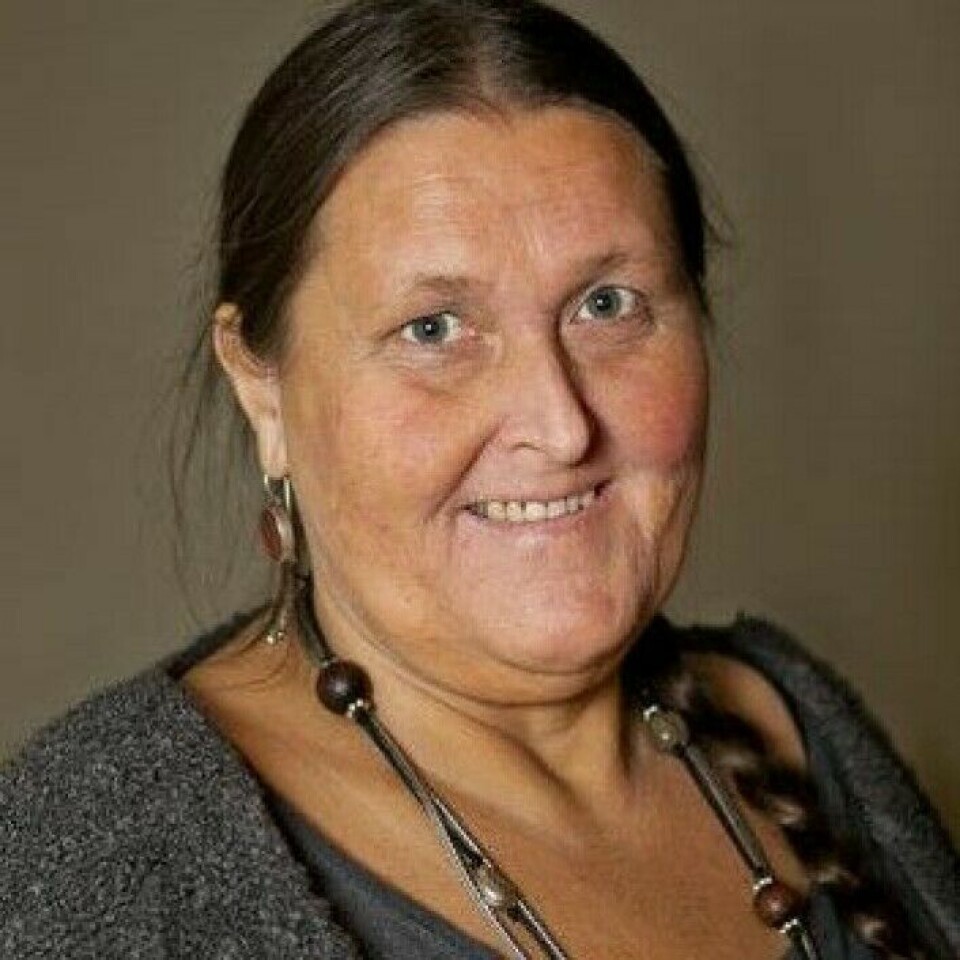
"I therefore think we should be cautious in assuming that we do less cleaning than before. And the food doesn't just magically appear on the table," Widding Isaksen says.
Visiting during Christmas was common in the past, according to Risåsen.
“Family members and children who were away for work or studies would return home for Christmas," he says.
These Christmas gatherings and spending time with family also require effort.
Women still handle most of the Christmas preparations
“The expectation is that it should be idyllic and harmonious. At the same time, we know that families are a source of many latent and unresolved conflicts. It takes a lot of emotional work to create the right balance so that people can enjoy being together,” Widding Isaksen says.
Even today, it is women who handle the majority of Christmas preparations. Cleaning is still considered women's work.
“That's true. And it's the women who set the standard for how clean it should be. Men mostly do bigger tasks, like renovating the kitchen or putting up fences at the cabin. Women manage the day-to-day aspects,” Widding Isaksen says.

Women are also responsible for planning and organising Christmas.
“We have to shop, invite, prepare, arrange, clean before and after, do the dishes, and everything else. Family gatherings are labour-intensive,” Widding Isaksen says.
Annechen Bahr Bugge, along with colleagues at OsloMet, published a report on decorations, gifts, clothes, and food at Christmas. It shows that tasks related to cooking and laundry are still unevenly distributed.
“These tasks are still closely tied to female identity, and women find it difficult to delegate them,” Bahr Bugge tells sciencenorway.no.

An abundance of commercial Christmas options
Christmas traditions are constantly changing, but there are two significant changes we have seen in our time, according to Geir Risåsen.
The first is the shift of Christmas forward by a month. Now it starts in November and ends before New Year's Eve. Before, Christmas started on Christmas Eve and did not end until January.
The second change is that Christmas has become more commercial. This means that we can buy our way out of the Christmas stress. Now, there are ready-made Christmas meal kits and gingerbread dough.
“Christmas hasn't become easier in terms of food. Many spend a lot of time on complicated, homemade meals,” Bahr Bugge says.
While women in the 1970s embraced soup packets and bouillon cubes, today's young women consider cooking a hobby, according to Bahr Bugge.
But traditional food poses a challenge.
Worried about Christmas dinner
“Christmas dinner is seen as the most important meal of the year, and that can create performance anxiety. Younger women receive guidance from their mothers,” says Bahr Bugge.
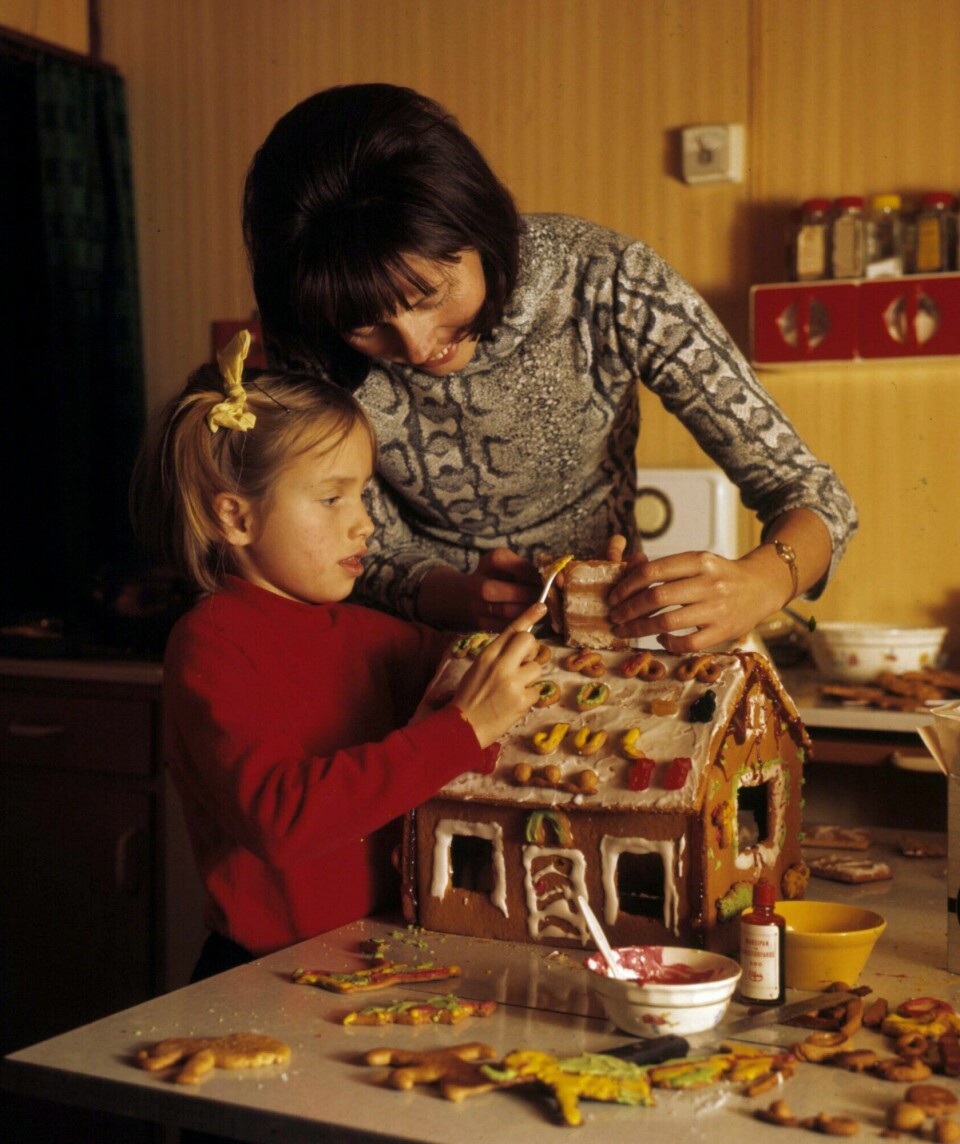
Even though we also fuss over Christmas food, it's nothing compared to the past, according to Geir Risåsen.
“We spend more time than usual, but not more than the generations before us did. They really spent a lot of time cooking. Today, we can buy pork belly that goes in the oven and comes out with crispy crackling. We also have modern kitchen appliances that signficantly simplify the process,” he says.
The typical Christmas cook in Norwegian homes is a mature woman. But now, men also cook.
“Especially fathers with young children are much more involved in cooking,” Lise Widding Isaksen says.
“Men contribute - particularly with the festive meals. Those meals bring the most status,” Risåsen says.
Even though it's acceptable to buy Christmas cookies, homemade food still holds the highest status, according to Widding Isaksen.
“When both partners have full-time jobs, spending Christmas together is a luxury. We use Christmas to strengthen the sense of community in the family,” she says.
Your children and mine
Families have changed a lot since the 1970s. Today, 50 per cent of parents are divorced.
“Now there's the need to coordinate your children and mine. That was less common before,” says Widding Isaksen.
Furthermore, families participate in Christmas activities outside the home.
“The generations growing up today use daycare and school differently than before. Parent associations at school organise joint activities, like gingerbread baking in the school kitchen. So there are more arenas for celebrating Christmas,” Widding Isaksen says.
The advent calendar has become a significant stress factor before Christmas. But it's not new.
In the 1970s, women began making reusable calendars. They embroidered and appliquéd calendars and wrapped a gift for each day in December. But the gifts were simple.
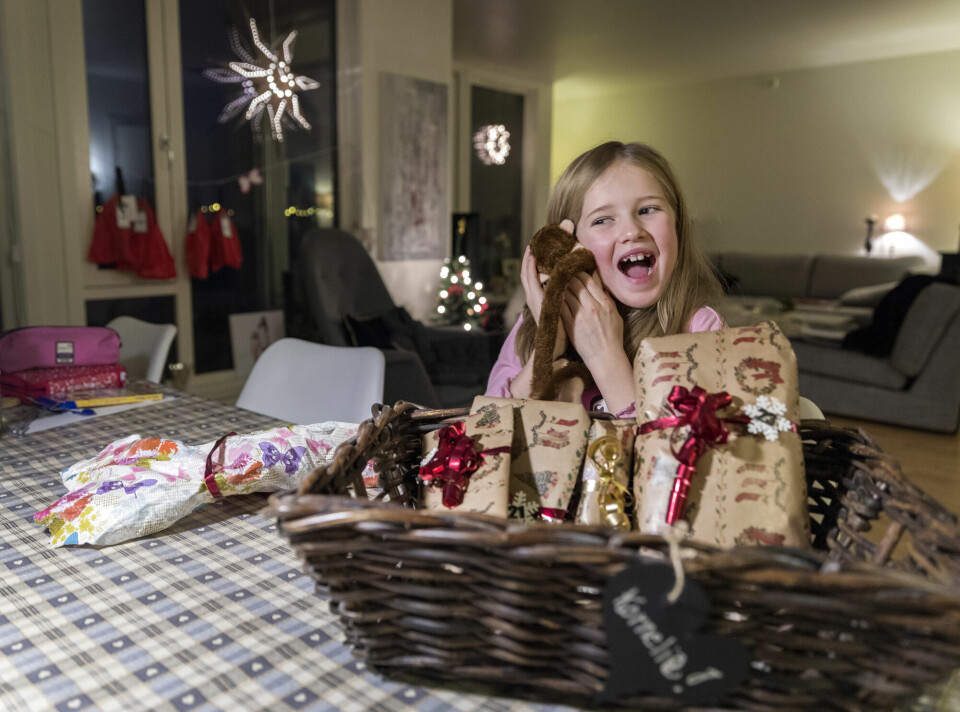
Stress or no stress
Geir Risåsen believes that Christmas stress is often a result of setting the bar too high in some cases.
“It's the one who's responsible for the advent calendar gifts who sets the bar themselves. If it's stressful, it's because they've set the bar too high. I don't agree that it's much worse today than before,” he says.
Annechen Bahr Bugge also disagrees with the notion that Christmas is solely stressful.
“I think many people enjoy preparing for Christmas and gathering the family. Nowadays, it's possible to buy your way out of many preparations," she says.
“The stress often comes from difficult emotions surrounding Christmas, especially for those who have lost someone or have been divorced and have to celebrate without their children.”
Lise Widding Isaksen highlights the need for knowledge about other types of families than the nuclear family.
“We know much less about the differences and similarities in how LGBTQ+ families and minority families celebrate Christmas. This is an area that should be researched more," she says.
———
Translated by Alette Bjordal Gjellesvik
Read the Norwegian version of this article on forskning.no





































